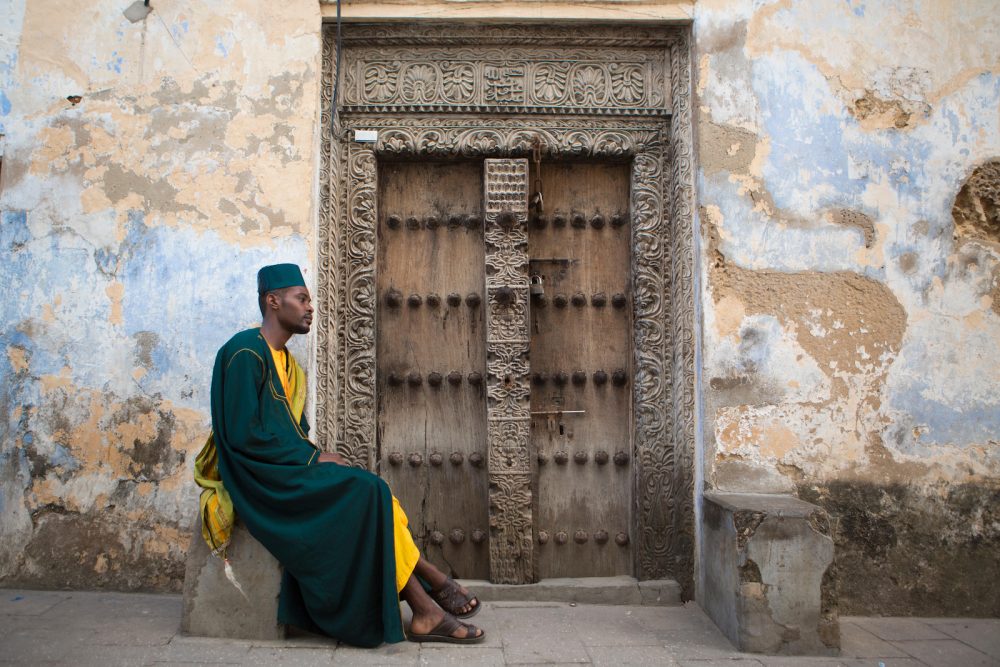Mahmoud’s mouth filled with the sour taste of bitterness whenever he thought about the villagers of Salal, a small Muslim community near his own in the desert plains of Africa. They’d stolen nearly everything from his people—cattle, land, even some of their homes.
Salal and Wadibou, Mahmoud’s village, hadn’t always been enemies. As a child, Mahmoud had grown up playing with boys from the other village, even though they belonged to a different Muslim people group.
But then ethnic violence swept across the country, pitting the two people groups against one another. Throughout the region, Mahmoud’s people were attacked and their villages raided. Hundreds of men died in the violence.
The hostilities still felt fresh and left Mahmoud’s people bitter and angry.
Several years had passed since the conflict. But the hostilities still felt fresh and left Mahmoud’s people bitter and angry.
Then Mahmoud met Eric, a Frontiers worker. Eric and his family had just joined a team in the country’s capital city. As newcomers in the area, they stayed in Wadibou a few weeks to immerse themselves in the local language and culture.
Some months later, Mahmoud came to stay with an uncle in the capital city. He visited Eric’s family and also met some of their teammates. One team member who spoke the local language almost fluently shared the Gospel with Mahmoud. And with much joy, the Muslim man committed to follow Jesus and prayed to give his life to Him.
But instead of experiencing an immediate rush of peace, Mahmoud seemed to spiral into darkness. For days, he couldn’t speak. He stopped eating and drinking and seemed as if he were in a coma. Eric and his teammates prayed and fasted for Mahmoud, visiting him daily in his uncle’s home where he was staying.
“He’s wearing amulets,” Mahmoud’s uncle disclosed after about a week.
Eric and the team learned that before Mahmoud had encountered Christ, he had gone to a Muslim holy man and purchased special leather pouches filled with religious sayings. Like others in his people group, he had tied the amulets to his upper arm, believing they could protect him from harm.
Mahmoud’s uncle agreed to have the amulets destroyed. And as soon as it was done, Mahmoud awoke. Later he described how the darkness around him fled as he was flooded with peace. It was the first miracle he had ever experienced.
The darkness around him fled as he was flooded with peace.
But the miracle didn’t stop there. After returning to Wadibou, Mahmoud shared the Gospel and saw many other villagers begin to follow Christ.
As the new believers studied God’s Word together, they began to realize their need to reconcile with their neighbors in Salal. With encouragement from Eric and his teammates, they reached out to the neighboring village and sought to make peace with them. As hearts softened in both villages, long-standing bitterness between the two people groups gradually healed. Today, they live in harmony with one another.
“Joy has returned to our people,” said Mahmoud’s sister as a group of laughing children ran by.
The blessing of reconciliation has also brought about physical changes in Wadibou. The village used to be little more than a few mud huts. Now they’re building a school and storerooms.
Eric traces these changes back to that initial miracle—when Mahmoud surrendered his life to Christ. He and his team praise God for using one Muslim man’s salvation to heal the hostility between two peoples and bring Gospel transformation to entire communities.
“Every time I see Mahmoud, all he wants to do is talk about what Christ has done for his people,” says Eric.
- Praise God for the power of the cross to heal long-standing bitterness between different people groups.
- Pray that the believers in Mahmoud’s village will be used by God to bring the hope of reconciliation in Christ to other Muslim people groups.
- Ask the Lord to raise up more teams of laborers to go and share the Gospel among people groups in the least-reached places of the Muslim world.
This account comes from a long-term worker. Names and places have been changed for security.
